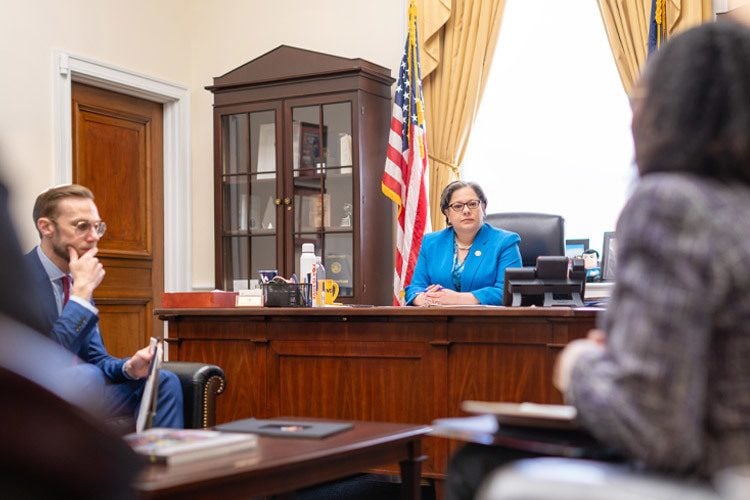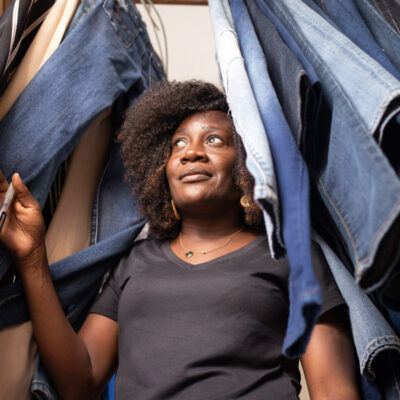Even now, weeks later, I am still energized by our Clergy Advocacy Convening on Capitol Hill. On March 19, together with a team of colleagues, eight clergy from across the country came to D.C. to meet with Congressional leaders and staff to discuss human rights priorities integral to AJWS’s work.

It was exhilarating to be back in person after COVID-19 interrupted our last effort four years ago. And it was edifying to see how crucial these lobby days remain to AJWS’s commitment to uphold human rights for marginalized communities around the world.
As clergy, we have positional power and a built-in audience for our voice. Elected officials recognize that gravitas. So, when a rabbi shows up on the Hill, there is an unspoken acknowledgment that “this moment is important,” that “these issues really matter to my constituents.”
That was certainly the mood during our nearly 30 meetings in the Senate and the House, which included three of the four Congressional leaders’ offices (Schumer, McConnell, and Jeffries) and several with members themselves.

Among our top priorities was the ongoing crisis in Haiti. Since the assassination of President Jovenel Moïse in July 2021, the island nation has spiraled into chaos. In recent weeks, gangs have banded together to attack government buildings, hospitals, police stations and other state institutions. The violence has displaced more than 15,000 people in the capital, Port-au-Prince. Dozens have been killed. Food, clean water, gas and medical supplies are scarce.
Gang leaders also demanded an end to the illegitimate rule of Prime Minister Ariel Henry, who was installed into power in the days following Moïse’s death. Henry eventually stepped down on March 12. But, at the time of our meetings in D.C., a path to security and democratic governance remained elusive.
As part of our day of action, we urged the Biden Administration to:
- Support proposals for a transitional government based on the core principles of democracy, human rights, non-violence, accountability and transparency;
- Ensure that any groups nominated to be part of the transitional government be credible and legitimate;
- Support the reconstruction of Haitian democratic institutions through funding and diplomatic support for Haitian civil society;
- And ensure that any U.S. security initiatives include support for the rebuilding of the Haitian justice system, the restructuring and support of the police, and helping stop the flow of guns to local gangs.
On our final day, we met with senior members of the National Security Council. In moments of upheaval, as is the case in Haiti, it is often difficult for our government to connect with grassrooted civil society groups who have real time knowledge of the situation on the ground. Establishing and maintaining those relationships, however, is one of the things AJWS does best, and we were able to facilitate a briefing for them with some of our Haitian partners who are at the forefront of the fight for democracy and security.
After our meetings, one rabbi reflected that the experience was a reminder that “there is power in doing good and that doing good is power.”
I was so moved by the way my clergy colleagues showed up so powerfully for this advocacy convening. Their generosity of time and spirit shone through as they brought so much of themselves to occasion: their Torah, their joy and their sorrow, their voices, and their passionate commitment to justice.
As I take in the fullness of the three-day clergy advocacy convening, I am reminded yet again that Judaism and the pursuit of human rights are inextricably linked; that political work can be sacred work; and that this is work we are all called to do.
